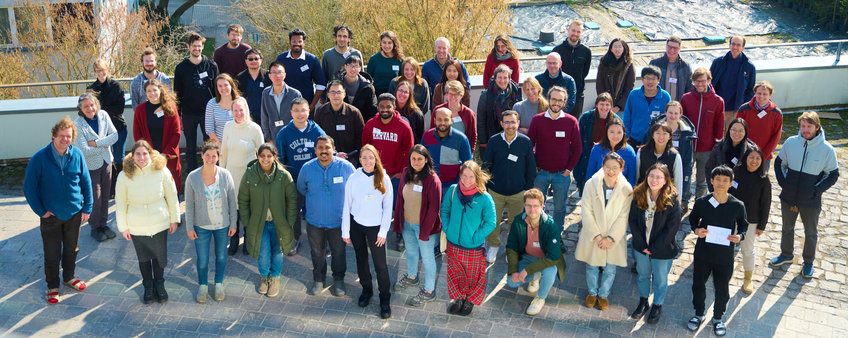
International Max Planck Research School for Global Biogeochemical Cycles (IMPRS-gBGC)
In cooperation with Friedrich Schiller University Jena (FSU), the Max Planck Institute for Biogeochemistry (MPI-BGC) houses a unique and flexible research program that grants German and foreign students a broad selection of learning opportunities while still maintaining a research focus. The International Max Planck Research School for Global Biogeochemical Cycles (IMPRS-gBGC) offers a PhD program specializing in global biogeochemistry and related Earth system sciences.
Our scope
The overall research and teaching focuses on:
- Improved understanding of biogeochemical processes with an emphasis on terrestrial ecosystems
- Development of observational techniques to monitor and assess biogeochemical feedbacks in the Earth system
- Theory and model development for improving the representation of biogeochemical processes in comprehensive Earth system models
Why study at MPI-BGC?
The IMPRS-gBGC offers fully-funded PhD positions to highly motivated and qualified students who wish to study the components essential to life and climate from the atomic to global scales. At the intersections of biosphere, atmosphere, lithosphere, land, and ocean, research at the school focuses on how biogeochemical cycles function, how they are interconnected, and how they can be influenced by climate change or human activity.
Over 100 scientists and PhDs explore the different facets of biogeochemical processes using diverse methods such as field observations, advanced laboratory methods, manipulative experiments, data mining and numerical modeling. Taking advantage of this diverse assortment of specialties, we hope to improve our ability to gauge future developments of Earth systems.
Doctoral researchers are offered access to an array of workshops and courses in order to develop a broad understanding of Earth system science. Young scientists benefit from a three-month international research visit at a top institution, as well as courses aimed at enhancing interdisciplinary knowledge (e.g. statistics, remote sensing, modeling, and analytical techniques). In addition to scientific skills, the research program offers a breadth of transferable skills (e.g. presentation skills, scientific writing, project management) to ensure both a successful PhD and career.
We call for application twice a year
1. Learn more about the application procedure
5. Stay informed about future calls for application


